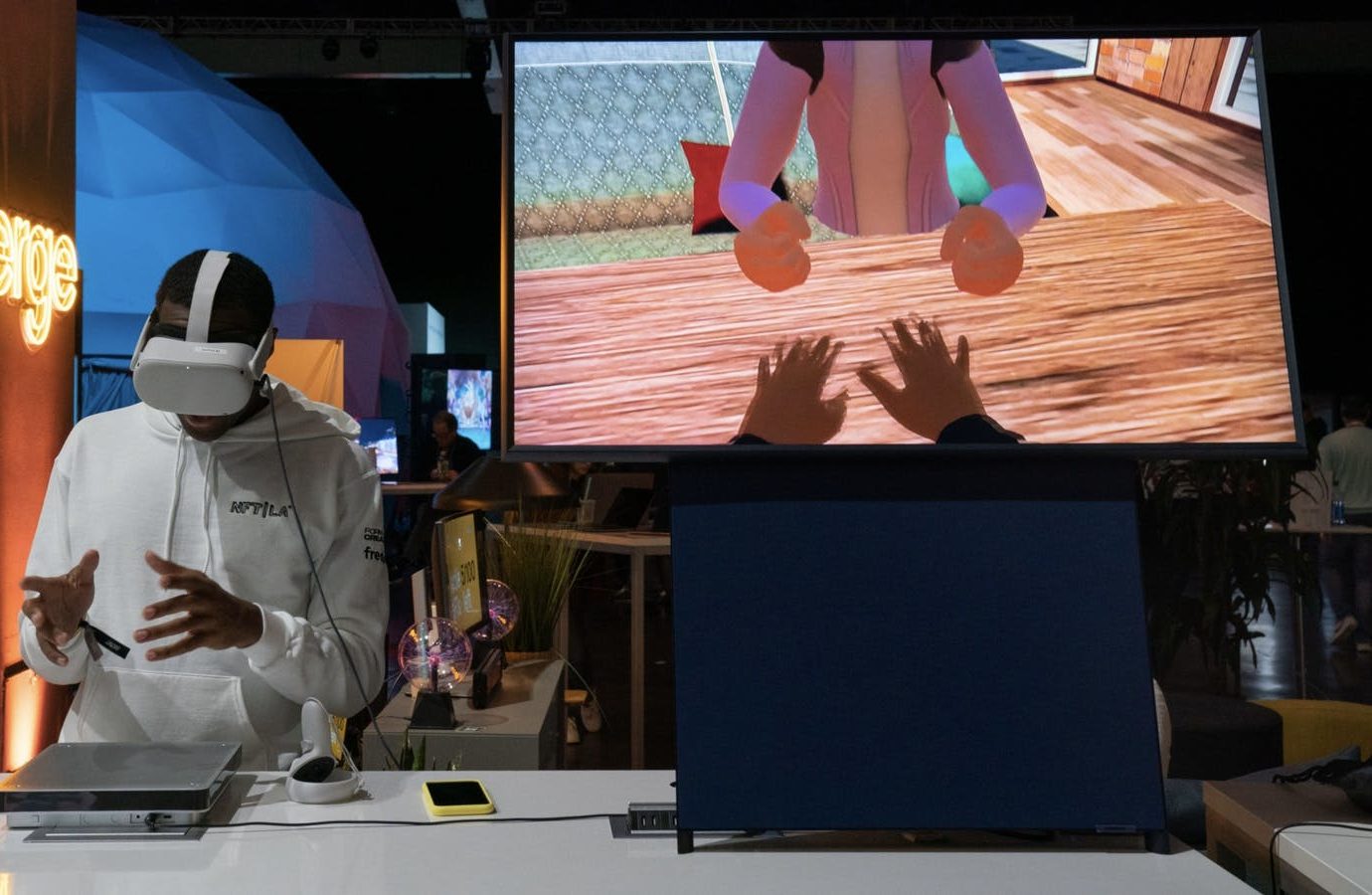Post-secondary education has moved beyond the hallowed halls of traditional education and is offering the ultimate in virtual education at some of the nation’s most prominent institutions. Morehouse is one of ten selected post-secondary schools to embrace the technology and engage students in an immersive learning experience that has not been seen before.
Morehouse College is leading the charge in this bold new world of academia and learning.
Following two years of online learning and information exchanges via Zoom and Microsoft Team calls, challenges for finding and cultivating a more fertile environment to keep students engaged emerged as a key element for online learning enhancements.
While students won’t be sitting in a traditional lecture hall or laboratory, research suggests the metaverse educational experience may be more beneficial. Thinks about it, an enhanced online learning experience in visually enriched environments – in some cases more appreciated by students than actual classrooms and campuses.
This fall, a new initiative begins here in Georgia at Morehouse College, one of the first “metaversities” in the U.S. And apparently, the technology is delivering on its commitment to a more enriching learning experience.
According to a 2021 study by PwC, 40 percent of VR learners are more confident in applying what they’ve been taught and 150 percent more engaged during classes.
Morehouse College’s Metversity – one of only 10 in the nation – creates a next-level college experience by providing\ a digital replica of the campus so students can use virtual reality to transform learning when the student is on campus or learning remotely.
“Morehouse was selected through our partner VictoryXR who already had a relationship with [Morehouse]. And as this came to life again, catalyzed by the pandemic and the need to bring newer technologies in to making that online experience more valuable,” explains Monica Ares, Head of Meta Immersive Learning.
The Morehouse College Metaveristy is slated to offer a more comprehensive educational experience with enhanced capabilities including partnering with libraries, museums, and educational institutions to bring their visions for immersive and collaborative learning experiences to life and to learners.
In February of 2022, Morehouse rolled out the technology at its Candle in the Dark Ceremony and Gala, and supporters who were unable to attend the physical event had the opportunity to participate via the metaverse.
“What people were seeing inside the headset is that you’re fully immersed into an experience. So everywhere you look you feel like you’re in [the room],” continued Ares. “What’s beautiful about it is that your brain actually starts to feel like you are submerged in this. You’re in an environment you can explore and you can also interact with others who are in the environment with you … this is the [advantage], with Zoom the technology kept us all separate.”
Companies like Meta are investing in people, communities, and technology to create new experiences in the metaverse to counter and even build on the impact of two years of remote work and learning, the shortcomings of which are still being felt.
These metaversities will leverage the power of virtual reality to create a new, immersive learning experience for students including and will provide each student with a Meta Quest 2 virtual reality headset to enhance their learning experience.
“In the video you may see other people as avatars … and they can communicate with full-body langauage, they can pass objects to each other, there may be a professor in the front who can actually speak to the class as if they were there. Students can also pair up and work together. If it’s a biology lab they can actually hold organs and stretch them and look at them in different sizes. It’s a great way to feel present even if you are across the globe from each other,” continued Ares.
The metaversity concept comes from a partnership between Meta Immersive Learning and VictoryXR, a leader in virtual reality education. The list of universities and colleges partnering in this cutting edge technolgy includes; one veteran school and nine new metaversities, including Morehouse College, University of Kansas School of Nursing, New Mexico State University, South Dakota State University, West Virginia University, University of Maryland Global Campus, Southwestern Oregon Community College.
“A lot of people think of the metaverse as gaming, and that’s where it started. But we believe that the metaverse is going to have significant effects on the transformation of education, workforce training, healthcare and significant engagement as we are able to bring people together in this environment,” said Ares.
“It’s also great for empathy development because you can walk in someone else’s shoes and start to feel like you really understand what they went through,” she added.
Three additional metaversities will be released in May.
“More than any learning innovation I have been involved with, Morehouse in the Metaverse has made the biggest difference for the students I teach,” said Dr. Muhsinah Morris, associate professor at Morehouse College.


